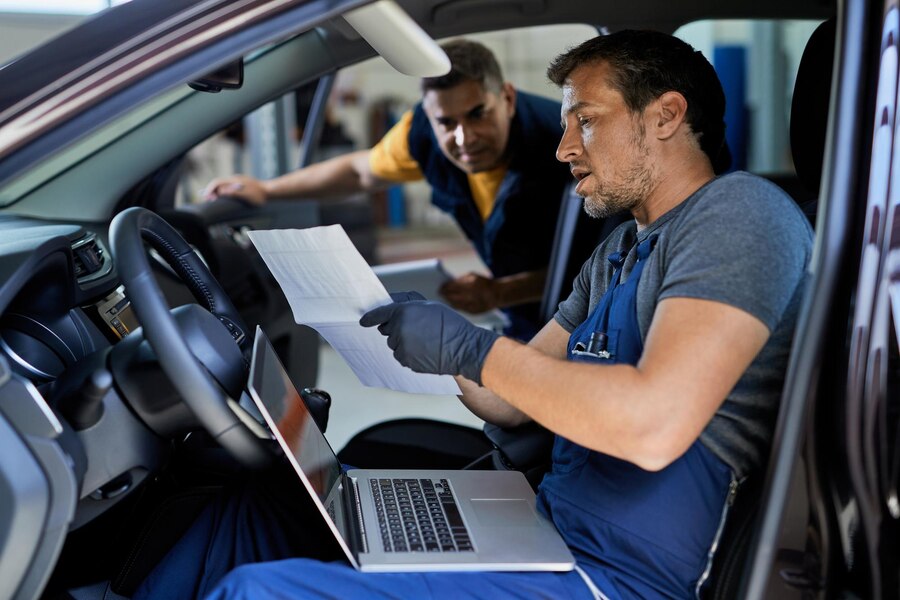How to Ensure Your Car Meets Roadworthy Standards
When it comes to getting your vehicle’s Essential Safety Certificate, there are a few key things to keep in mind. First, make sure your car is well-maintained and check that all lights, brakes, and tires are in good shape, as these are common points of inspection. It’s also wise to address any warning lights or unusual sounds before your test. Lastly, ensuring that your vehicle is clean and free of any clutter can make the inspection process smoother and faster. Regular upkeep can help you avoid surprises and keep your car safe on the road.
Pre-Inspection Check: Essentials for a Smooth Certification
Before heading to your Essential Safety Certificate inspection, a thorough pre-inspection check can make all the difference. Start by reviewing your vehicle’s manual to ensure you’re aware of any specific requirements for your car model. Check essential components like lights, brakes, and tires, and address any issues you find.
Verify that your car’s registration and insurance are up-to-date, as these documents might be required during the inspection. Also, ensure that your vehicle’s fluid levels such as oil, coolant, and brake fluid are at the appropriate levels. Taking these steps can help you avoid surprises and streamline the inspection process, saving you time and potential frustration.

Keeping Your Lights and Brakes in Top Condition
Lights and brakes are essential components scrutinized during the Essential Safety Certificate inspection. Start by ensuring all your vehicle’s lights, headlights, tail lights, brake lights, and turn signals are working properly. Replace any burnt-out bulbs immediately and make sure that the lenses are clean and free from cracks or damage that could affect visibility.
For the brakes, listen carefully for unusual sounds such as squealing or grinding, which could signal worn-out brake pads or other issues needing attention. It’s also wise to test your brakes under different driving conditions to confirm they respond reliably and provide a smooth, safe stop. Regularly maintaining and checking these elements not only helps you pass the inspection but also enhances your overall safety and driving experience.
Tire Care Tips for Passing Your Safety Inspection
Tires play a significant role in passing your Essential Safety Certificate, so it’s important to keep them in optimal condition. Start by checking the tire tread depth; it should meet the minimum requirement specified by regulations, usually around 1.6 mm. Look for uneven wear patterns, which could indicate alignment issues or other mechanical problems. Ensure that your tires are properly inflated to the recommended pressure levels, which can typically be found on a sticker inside the driver’s door frame.
- Check Tread Depth: Measure your tire tread depth to ensure it meets the legal minimum of around 1.6 mm. Adequate tread depth is crucial for maintaining traction and safety on the road.
- Inspect for Uneven Wear: Examine your tires for uneven wear patterns, which might indicate alignment issues or suspension problems. Even wear is essential for optimal handling and extends the lifespan of your tires.
- Verify Tire Pressure: Regularly check that your tires are inflated to the recommended pressure levels, which are listed on a sticker inside the driver’s door frame. Proper inflation ensures better fuel efficiency and safety.
- Perform Regular Maintenance: Schedule routine tire rotations and balancing to ensure even tire wear and prevent vibrations or handling issues. Regular maintenance helps extend tire life and enhances overall vehicle performance.
- Monitor for Damage: Routinely inspect your tires for visible damage such as cracks, bulges, or punctures. Addressing these issues promptly prevents potential blowouts and ensures safe driving conditions.
Addressing Warning Lights Before the Test
Warning lights on your dashboard are not just annoyances; they can indicate serious issues that might affect your Essential Safety Certificate inspection. If you notice lights for the check engine, ABS, or oil pressure, it’s crucial not to ignore them. These lights often signal problems that could lead to a failed inspection or even a breakdown.
To address these issues, use a diagnostic tool to pinpoint the problem or visit a mechanic for a thorough check-up. Ignoring warning lights could lead to costly repairs or safety risks. By taking care of these issues before your inspection, you not only improve your chances of passing but also ensure your vehicle’s reliability and safety on the road.
Routine Maintenance for Hassle-Free Safety Checks
Routine maintenance is key to a hassle-free Essential Safety Certificate inspection. Regularly servicing your vehicle such as oil changes, brake inspections, and tire rotations can prevent minor issues from becoming major problems. Keeping up with scheduled maintenance ensures that your vehicle remains in good working order and meets safety standards. This proactive approach not only improves your chances of passing the inspection but also enhances your vehicle’s overall performance and longevity.
Regular Oil Changes
Schedule oil changes as recommended by your vehicle’s manufacturer to keep the engine lubricated and functioning properly. Fresh oil helps to reduce wear and tear, prevent overheating, and ensure smooth engine operation. Staying on top of this maintenance task can prevent engine damage and contribute to better overall performance during your Essential Safety Certificate inspection.
Brake Inspections
Have your brakes inspected regularly to identify any signs of wear, such as squealing or grinding noises, and address them promptly. Regular inspections help ensure that your braking system remains effective and safe. Well-maintained brakes are crucial for both passing your inspection and maintaining your safety on the road.
Tire Rotations
Rotate your tires at the intervals recommended by your vehicle’s manufacturer to ensure even wear across all tires. This practice improves handling, extends the life of your tires, and promotes better fuel efficiency. Regular tire rotations help avoid issues that could negatively impact your Essential Safety Certificate inspection.
Adhere to Maintenance Schedule
Follow your vehicle’s maintenance schedule closely to keep all systems in good working order. By performing scheduled services like fluid checks and component inspections, you can prevent minor issues from escalating into major problems. Consistent adherence to the schedule helps ensure a smooth and trouble-free Essential Safety Certificate inspection.
Proactive Repairs
Address minor repairs or issues as they arise to avoid complications before your inspection. Small problems that are left unattended can become major issues that might affect your safety certificate. Taking a proactive approach helps ensure that your vehicle is in top condition and reduces the likelihood of last-minute repairs before the inspection.
Preparing Your Vehicle for the Essential Safety Certificate
Proper preparation can make a significant difference in obtaining your Essential Safety Certificate. Start by reviewing your vehicle’s condition and addressing any known issues before the inspection. Ensure all essential components, such as lights, brakes, and tires, are in working order.
Clean both the interior and exterior to facilitate the inspection process and remove any obstructions. Double-check that all required documents, including registration and insurance, are current and available. By taking these preparatory steps, you can streamline the inspection process, minimize potential issues, and increase your chances of receiving a passing grade.
Conclusion
Ensuring your vehicle is ready for an Essential Safety Certificate involves proactive maintenance and attention to key components. Regular oil changes, brake inspections, and tire rotations are essential to avoid issues during your inspection. By addressing warning lights promptly and maintaining clean, well-functioning lights and brakes, you enhance both safety and performance. For a seamless and efficient inspection process, follow these tips and stay ahead of potential problems. At SAB Mobile Roadworthy Certificate Brisbane, we’re here to help. Contact 1800 896 722 for reliable service and expert advice on keeping your vehicle in top shape.
